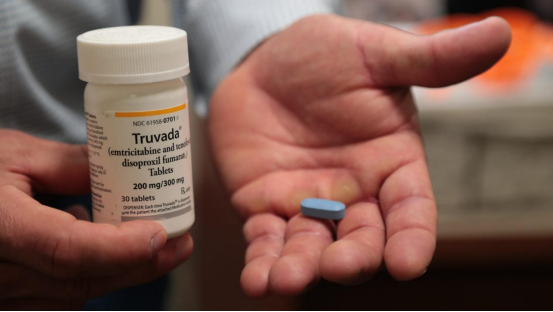

With HIV, early detection and treatment can make a big difference in the outcome of the disease. HIV Pre-exposure Prophylaxis (also called Pre-Exposure Prophylaxis or PrEP) is a medication that can be taken by people who are at high risk of contracting HIV. This preventive measure has proven to be extremely effective in reducing the chances of infection.
With HIV, early detection and treatment can make a big difference in the outcome of the disease. HIV Pre-exposure Prophylaxis (also called Pre-Exposure Prophylaxis or PrEP) is a medication that can be taken by people who are at high risk of contracting HIV. This preventive measure has proven to be extremely effective in reducing the chances of infection.

HIV prevention medications are medications taken daily to prevent HIV from being transmitted through exposure to the virus. According to the Centers for Disease Control and Prevention (CDC), HIV Pre-exposure Medications can reduce the risk of HIV infection through sexual activity by more than 90% and from injection drug use by more than 70%. HIV Pre-exposure Medications are only for people who are not infected with HIV and should not replace HIV treatment.
HIV prevention medications work by preventing the virus from entering the body for transmission. The medication contains two antiretroviral drugs: tenofovir and emtricitabine, which work together to stop the virus from replicating. If someone is exposed to the virus, HIV prevention medications prevent HIV infection by stopping the virus from taking up residence and multiplying in the body.
While pre-HIV medications have a preventive effect, post-HIV treatment strategies shift to fighting the virus through antiretroviral therapy (ART). ART involves taking a combination of HIV medications that help control the virus by stopping it from replicating. This therapy helps maintain a healthy immune system and reduces the chances of spreading the virus to others.
Before you decide to take pre-HIV medications, be sure to talk to your doctor, who can give you more information and help you decide if the medication is right for you. You should also consider the following:
Pre-HIV medications require a prescription from a healthcare provider. Many healthcare providers, including general practitioners and HIV specialists, can prescribe medications to prevent HIV. You can also buy medications at your local pharmacy or through a mail-order pharmacy. Some insurance plans may cover the cost of pre-HIV medications. Be sure to ask your provider.
HIV prevention medications are an effective way to prevent the spread of HIV before it enters the body. However, it is important to consult a doctor before making any decisions about taking pre-HIV medications. Although this medication can have side effects and can be expensive, it is important to weigh the pros and cons and take steps to protect yourself from HIV infection. Feel free to ask your doctor about your options to see what works best with your lifestyle and how they can help you get started. Prevention is key.